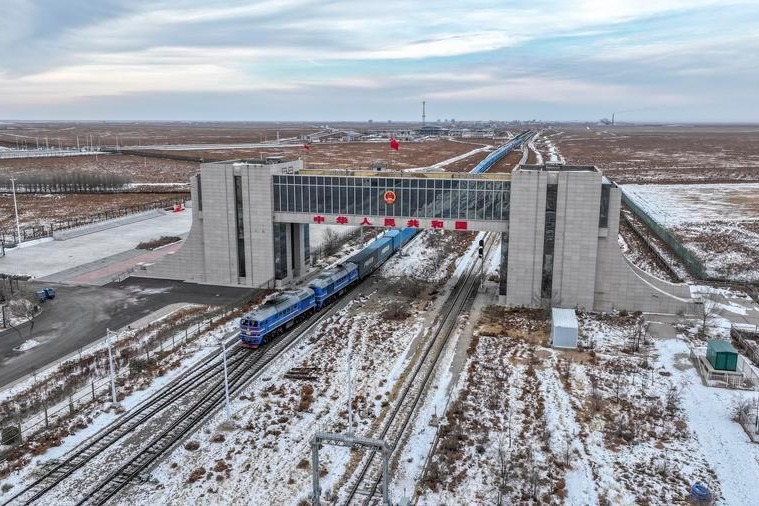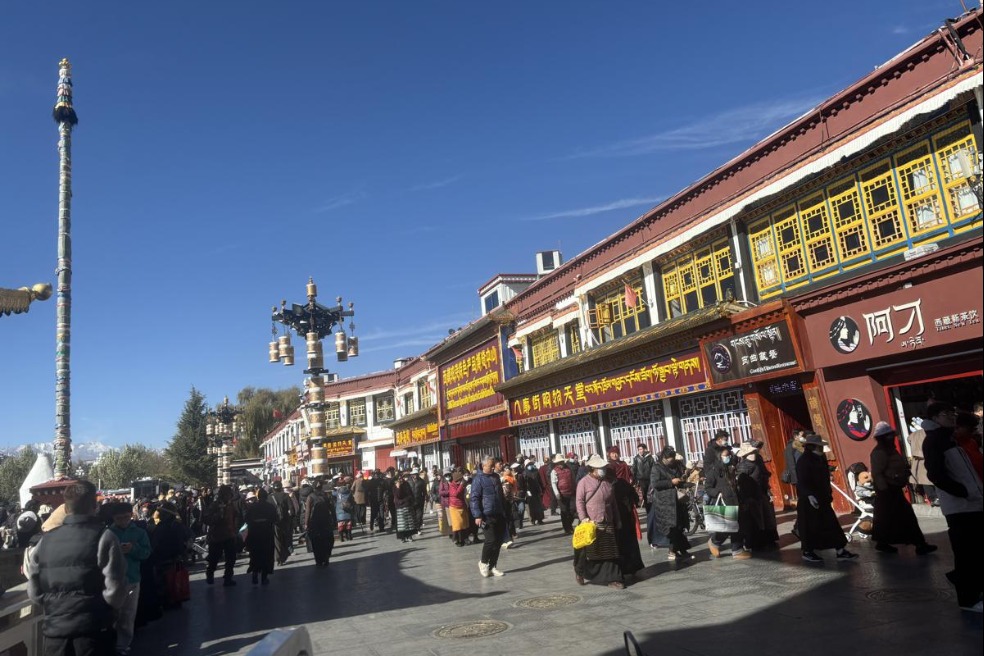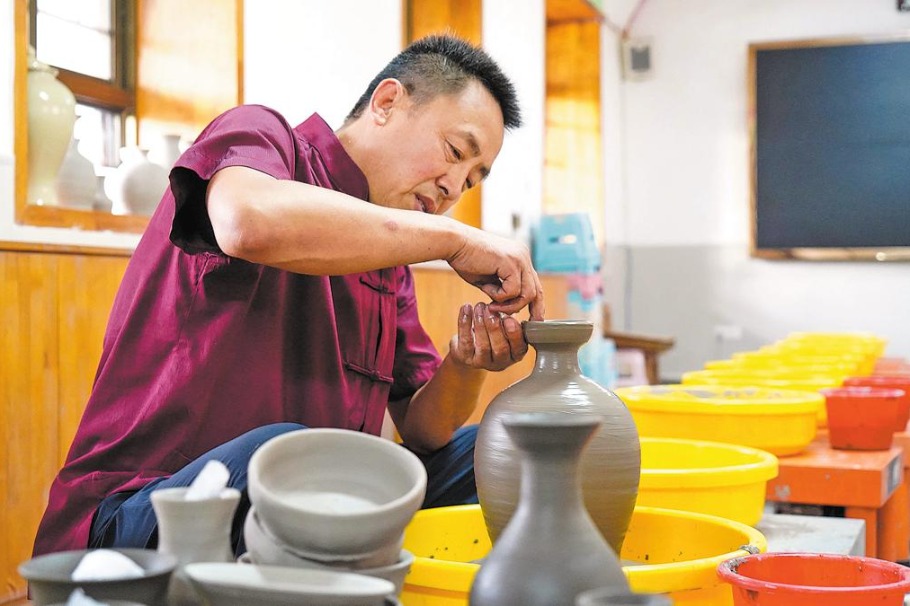Relocation changes lifestyle, mindset of Xinjiang residents

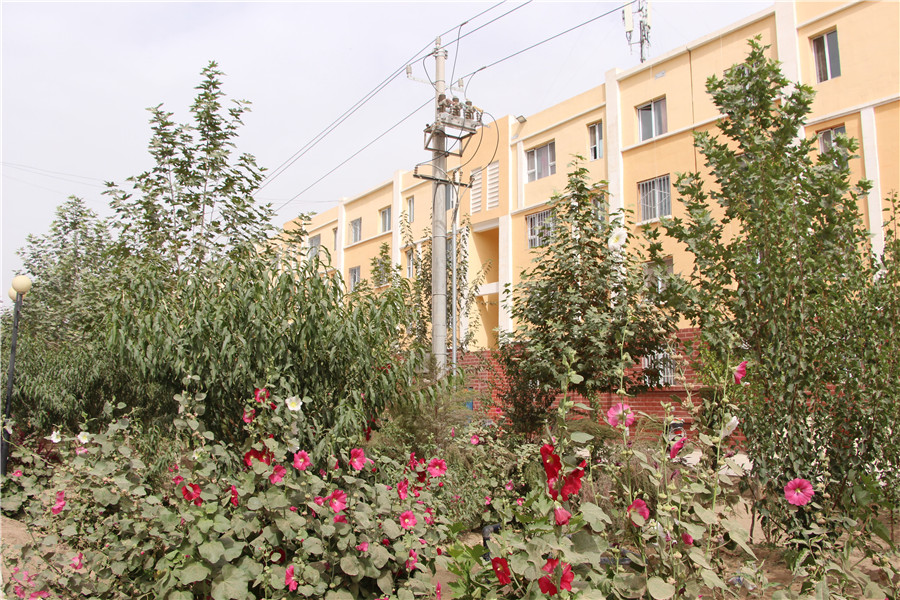
Every relocated household in Hejia New Village receives a sheep pen and greenhouse. They can lease them on a voluntary basis to three enterprises designated to run them and also work for the companies to earn wages.
Nearly all the residents chose to lease their sheep pens and greenhouses to the enterprises, and 486 of them are employed by the companies, Yang Jing, Party chief of the new village, said.
More than 600 greenhouses cultivating vegetables and fruits and more than 1,000 sheep pens have been built in the village.
"After the residents master the skills needed to manage the sheep pens and greenhouses-say, in two or three years-they could choose to take back the management rights and run the business on their own," Yang said.
Better lives
Buvjannat said she used to worry about her daughter getting enrolled by a college because the family would have been unable to pay for her tuition.
"Now, with a stable income, I no longer worry about it," she said.
Her daughter, Marhaba Ablimit, is studying at a college in Yili Kazak autonomous prefecture. Buvjannat said she sends her 1,000 yuan a month to cover her living expenses.
Abdukadir Memhetniyaz, 34, is Buvjannat's neighbor. His family of four used to live in Pishan's Qiaoda township. On a windy day, their old home would be full of sand and dust.
The family had no land, and lived on the income from several walnut trees growing in their yard and doing odd jobs such as picking cotton. His wife stayed at home to take care of their toddler son.
He now works for Zhijiang Agriculture, irrigating greenhouses and doing electrical maintenance. His wife, freed from taking care of their son because the boy now goes to a nearby kindergarten, also works for the company, growing seedlings and picking vegetables. Between them, they earn 5,500 yuan a month.
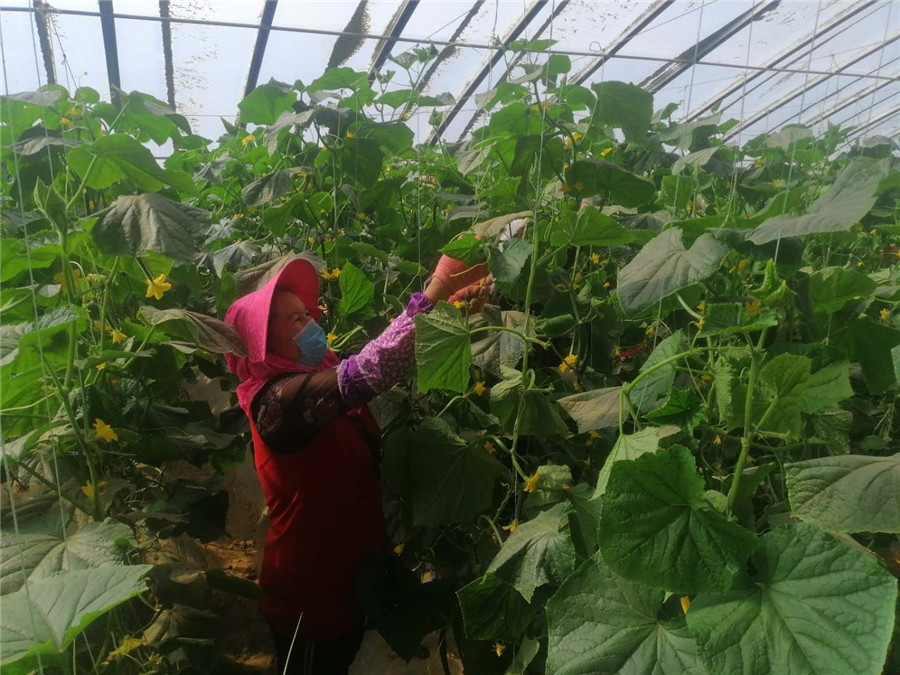
The relocation has also changed the villagers' mindset.
Abdukadir said he used to spend the money he earned immediately after receiving it. Now, with a stable job, he's started to learn to manage the money and plan for the future.
He said his parents paid little attention to his education when he was a child. But he now believes that a good education is necessary to find a good job and he wants to provide his children with that.
Abdukadir said he and his wife plan to run the vegetable greenhouse themselves in the future, adding that they have already learned skills such as how to care for pepper, eggplant and tomato seedlings.
In that way, they could earn more money and further improve their lives, he said.
Yang, the Party secretary, said a family running a greenhouse itself could earn an extra 8,000 yuan a year compared with working for an enterprise.
"After a family takes back the management rights of the greenhouse, they could give their produce to the enterprises, which would help them sell it," he said.
The farmers would still be able to enjoy technical services provided by the enterprises related to seedlings and pesticides, he said.
"In this way, we will ensure they have stable incomes in the long run," Yang said.
- Veteran diplomat named spokesman for fourth session of CPPCC's National Committee
- Giant panda talks with Taiwan called 'wishful thinking'
- 5.8-magnitude quake jolts Taiwan: CENC
- Xizang official Wang Jun placed under investigation
- Guizhou gives a new lease of life to idle land
- Mainland spokesman criticizes Taiwan security law amendment




















